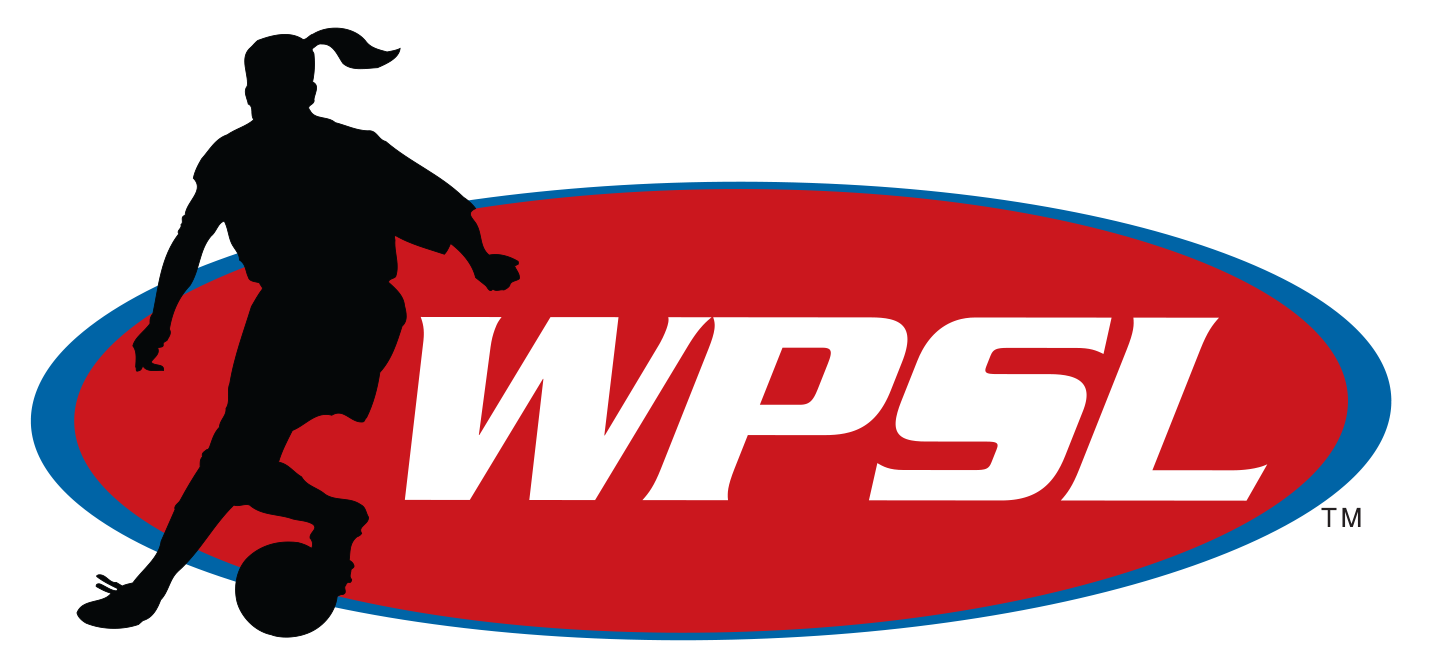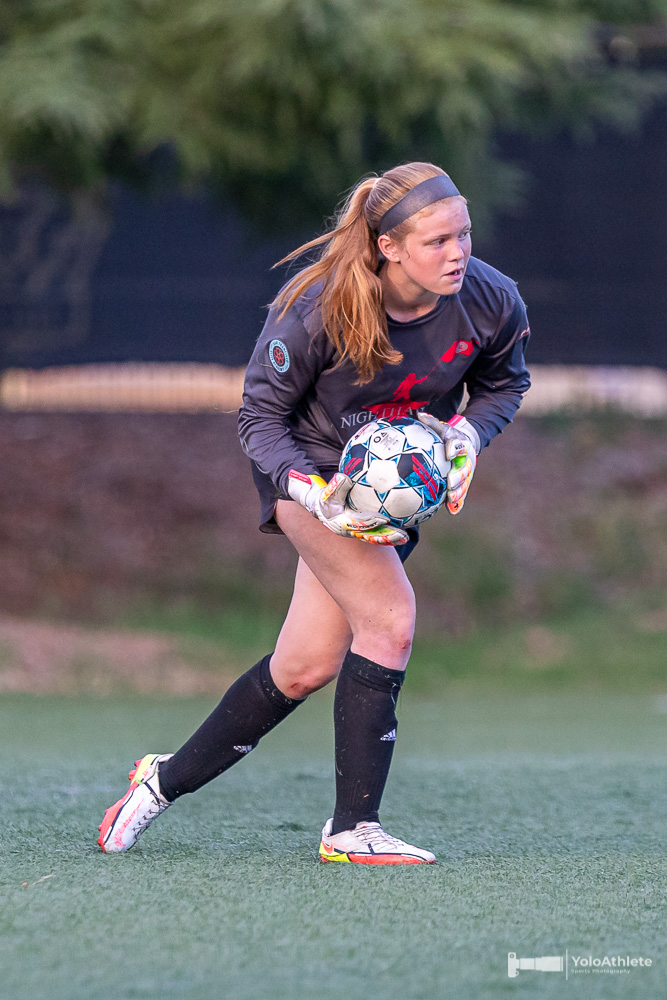- 865 Allian865 Alliance
- AAFCAAFC Lumberjills
- AcademicaAcademica Soccer Club
- AGCFAGC Football
- AHFCRAHFC Royals
- AHFCAHFC Royals Women
- AFCAlabama FC
- ARAlbany Rush
- ASDALBION San Diego
- AFCAlbuquerque FC
- ARAlexandria Reds
- ACSAlta California Sol
- ACAmbassadors Cleveland
- Arizona ArArizona Arsenal Soccer Club
- ASBArlington Soccer Blue
- ASRArlington Soccer Red
- ACSCAsheville City SC
- ASCAthena Soccer Club
- Atlanta FiAtlanta Fire United
- ACFCAtomic City FC
- AustinRiseAustin Rise FC
- BatCo FCBat Country FC
- BRUBaton Rouge United
- BUSCBavarian United SC
- BASBay Area Surf
- BCUBC United
- BFCBeach Futbol Club
- BeadlingSCBeadling Soccer Club
- BD FCBlack Diamond FC
- BRSCBluffton Rush SC
- BCUBoulder County United
- BSCBreakaway SC
- BrooklynBrooklyn City F.C.
- BBBroomfield Burn
- BRSCBRSC United
- CSCalifornia Storm
- CCCCape Coral Cyclones
- CFCCarolina FC
- CIUCentral Illinois United
- CUCentury United
- Red DevilsChallenge Red Devils
- CFCharleston Fleet FC
- CDACharlotte Development Academy
- CECharlotte Eagles
- CFCChattanooga FC
- CRWChattanooga Red Wolves SC
- CCSCChicago City SC
- CDLChicago Dutch Lions FC
- CH ACChicago House AC
- CK FCChicago KICS Football Club
- CRSRChicago Red Stars Reserves
- CRU23Chicago Rush U23
- CSFCCincinnati Sirens FC
- SSCCity SC
- CSC UtahCity SC Utah
- CSCClarkstown Soccer Club
- CE SAClassics Elite SA
- CKFCClermont Kicks FC
- CACleveland Ambassadors
- BlizzardColorado Blizzard FC
- CPColorado Pride
- CRWColorado Rapids Women
- CRColorado Rush
- CEFCColumbus Eagles FC
- CFC SACorinthians FC of San Antonio
- CorktownCorktown WFC
- CJCroatia Juniors
- CTRCT Rush
- CUFCCultures United Football Club
- DCFCDade County Football Club
- DFFCDakota Fusion FC
- DDLDayton Dutch Lions FC
- DECATURDECATUR FC
- DODelaware Ospreys
- DMMWDes Moines Menace Women
- DDFCDesert Dreams F.C.
- DVWDiablo Valley Wolves
- DEFFCDistrict Elite FC
- DKSCDKSC BADTOP
- DU SCDowntown United Soccer Club
- EFCEastside FC
- EDAIIEDA II
- EPSEl Paso Surf
- EDAElite Development Academy
- EFEmerald Force
- EREmpire Revs
- Erie FCErie FC
- ETFCAEugene Timbers FC Azul
- FCAFC Arizona
- FCBFC Berlin
- FCB WomenFC Birmingham
- FCDWFC Dallas Women
- FCDFC Davis
- FC DFC Dayton
- FCGSFC Golden State
- MTFC Milwaukee Torrent
- FCMFC Monmouth
- N WolvesFC Nashville Wolves
- FCOFC Omega
- FPWFC Premier
- FCPFC Pride
- FCPFC PrimeTime
- SpiritFC Spirit
- FCSFC Surge
- FCTWFC Tucson
- FCTFC Tucson
- FC UnitedFC United Cedar Rapids
- FCWFC Wichita
- FSCFever SC
- FIFire & Ice SC
- FSC98Fire SC 98
- FlatironsFlatirons Rush
- FESAFlorida Elite Soccer Academy
- FGCDLFCFlorida Gulf Coast Dutch Lions FC
- FKFlorida Krush
- FPF.C.Florida Premier F.C.
- FPFCFlorida Premier FC
- FRFlorida Roots
- FTSCFlorida Tropics SC
- FFCForce FC New York
- FWVFort Worth Vaqueras
- FSAFox Soccer Academy
- FAFram Ajax
- FFFCFresno Freeze FC
- FusionFusion FC
- FutboleraFutbolera Select
- GIGeorgia Impact
- GToledo FCGreater Toledo Futbol Club
- GBGGreen Bay Glory
- GEAGretna Elite Academy
- GriffinsGriffins FC
- GFCGriffins FC
- GCUGulf Coast United
- HFCHattiesburg FC
- HFCHershey FC
- HFCTHEX FC Tempest
- CobrasIllinois Lady Cobras
- ILCFCImperial Lake Charles FC
- ICIndependence Central
- INIndependence North
- ISIndependence South
- IDF.CIndios Denver FC
- ISFCIndy Saints FC
- IACInter AC (Calcio Unito Internazionale AC)
- ICAAInternacional Club Atletico
- ICAGInternacional Club Atletico CA/G
- ISCInternationals SC
- Iowa RaptoIowa Raptors FC
- IRIron Rose FC
- ISCGISC Gunners FC
- Jksn IgnJackson Ignite
- JacksonvilJacksonville Armada FC
- Joy AthletJoy AC
- JunctionJunction FC
- KCCIIKansas City Current II
- KCCKC Courage
- KFCKeystone FC
- KCUKingston Capitals
- LAKRLA Krewe Rush
- LR FCLa Roca FC
- LASLA Surf Soccer Club
- LVFCLA Villa FC
- LSFCLadies Steel FC (UPSL)
- LVFCLady Victory FC
- LamorindaLamorinda United
- LVLLas Vegas Legends
- LVQ11Las Vegas Q11
- LW76Legacy W76
- LFCLegends FC
- LRRLittle Rock Rangers
- LSCLonestar SC
- LIFLong Island Fury
- Lou FuszLou Fusz Athletic
- LVURLVU Rush
- Manitou FCManitou F.C.
- MUSCMankato United Soccer Club
- MFCSMarin Football Club Siren
- MFAFCMatch Fit Academy FC
- McLeanMcLean Soccer
- MLMemphis Lobos
- MVHFCMerrimack Valley Hawks FC
- MUFCMiami United FC
- MuskratsMidwest Select SA Muskrats
- MC AFCMilwaukee City AFC
- MDLFCMinnesota Dutch Lions FC
- MTAMinnesota Thunder
- MK FCMISS KICK FC
- MBCSMississippi Blues SC
- MO ReignMissouri Reign
- MNBFCMN Bliss FC
- MCFCMotor City FC
- MVLAWMVLA Wolves
- Napa ValleNapa Valley 1839 FC
- NRFCNashville Rhythm FC
- NCFCNCFC
- NRFANeuse River Futbol Alliance
- NFCNevada Futbol Club
- NJANew Jersey Alliance FC
- NYACNew York Athletic Club
- NYDLFCNew York Dutch Lions FC
- NYSNew York Shockers
- N1812Niagara 1812
- NJWSCCSNJ Wizards SC
- NASCNorth Alabama SC
- NCFNorth Carolina Fusion U-23
- NCRNorthern Colorado Rain FC
- NUUNorthern Utah United
- NSAU23NSA U23
- OCUOak City United
- ODFCUSAODFC Cesena
- OCFCOklahoma City FC
- OPSAMOPSA Magic
- OSAOSA XF
- PACPA Classics
- PACNWPacNW
- PPateadores
- PCMOBAPeachtree City MOBA
- PFPenn Fusion SA
- PFCAPensacola FC
- PFCAPensacola FC Academy
- PCPeoria City
- PLSPhiladelphia Lone Star FC
- PUNLPhiladelphia Ukrainian Nationals - Liberty
- PHXHFCPHX Heat FC
- PHSCPittsburgh Hotspurs FC
- PNSCPlayers North Soccer Club
- PSCPlayers SC
- PRPleasanton RAGE
- PC FCPort City FC
- PTFCIIPortland Thorns FC II
- PDMPrimero de Mayo
- PSAPSA Monmouth
- PSD APSD Academy
- PRPFCPuerto Rico Pride FC
- QC RushQuad Cities Rush
- RFCRADD FC
- RLFCRangers Ladies FC
- RUACReading United A.C.
- RCNJReal Central NJ
- RERebels Empire
- RSCRebels Soccer Club
- RIRFCRI Rogues FC
- RNYFCRochester New York FC
- RAZRoyals AZ
- URSARSL Southern Arizona
- SLSGSCSaint Louis Scott Gallagher SC
- SSCSalvo SC
- SA RunnersSan Antonio Runners
- SASSCSan Antonio Surf
- SDDSan Diego Dons
- SDPLSan Diego Parceiro
- SDSSan Diego SeaLions
- SDSSan Diego Strikers
- SDSSan Diego Surf
- SFESan Francisco Elite Soccer Club
- SFNSan Francisco Nighthawks
- SRFCSan Ramon FC
- SMSSCSanta Maria Synergy SC
- SSSCSavannah Spirit SC
- SCDSSC del Sol
- SCUBSC United Bantams
- SRFCSeattle Reign FC II
- Seminole ISeminole Ice
- SFGSFG Lady Demize
- SUShreveport United
- SFC92Side FC 92
- SC SolSioux City Sol
- Sioux FallSioux Falls City FC
- SJEBFCSJEB FC
- SCUFCSo Cal Union FC
- SoCalSoCal Dutch Lions FC
- SCRFCSoCal FC
- SCRFCSoCal Reds FC
- SHAFCSoccer House Academy FC
- SCFCSoda City FC
- SCASouthern California Eagles
- SSASouthern Soccer Academy
- SSFCSouthStar FC
- SFCBSouthStar FC Black
- SSCSSpokane SC Shadow
- SCTSporting CT
- SSWSporting South Walton
- SPSASportsParadize Soccer Academy
- SLLSt Louis Lions
- St. CroixSt. Croix Legacy
- STASTA
- SunflowerSunflower State FC
- SUSASUSA FC
- TBRTampa Bay Rowdies
- TBUTampa Bay United
- TBDTBD
- Boca BlastTeam Boca Blast
- TSTexas Spurs FC
- TTTexas Titans
- HAThe Houston Aces
- TTFCThe Town FC
- THUSCTHUSC Diamonds
- TLHRTLH Reckoning
- TempoTN Tempo FC
- TFCTorch FC
- TSSFCRTSS FC Rovers
- TTIBTTi Bluebonnets
- TSCTulsa Soccer Club
- UFAUFA Gunners
- UK FCUK F.C.
- U10FCUnion 10 FC
- UKCUnion KC
- USAUnited Soccer Alliance
- UAUtah Arrows SC
- Utah AvalaUtah Avalanche
- URUtah Royals
- URFCRUtah Royals FC Reserves
- USUtah Surf
- VSCCVale SC
- VIFCVancouver Island FC
- VTSSRVancouver TSS Rovers
- VVVancouver Victory FC
- VTFVermont Fusion
- VBCFCVirginia Beach City FC
- WFCWake FC
- WDLFCWashington Dutch Lions FC
- WSRWashington Spirit Reserves
- West FloriWest Florida Flames
- WMUWest-Mont United
- WUFCWestchester United F.C.
- WMFCWestside Metros FC
- WFCCWFC Charlotte
- WPSLWomen's Premier Soccer League 2
AGAINST ALL ODDS - AUBREY MCLIN'S STORY
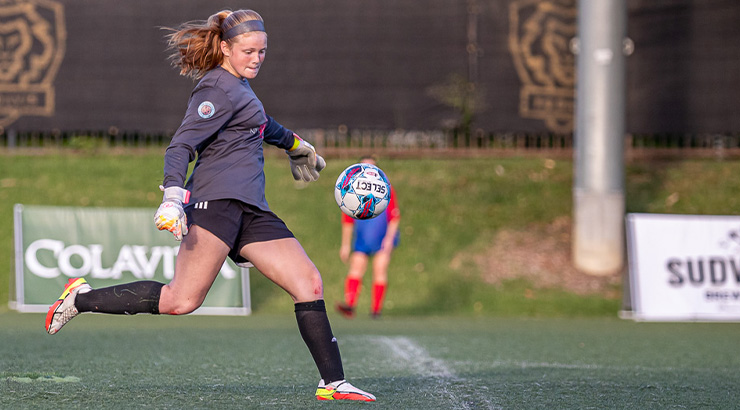
Written By: Katie Parker
West Region Contributor
Photos By: YoloAthletes Sports Photography
When the doctor told Aubrey McLin’s parents he thought he knew what was going on and that she’d have to quit playing soccer, everyone in the room was surprised to hear the six-year-old’s determined voice speak up. There was no way she was giving up soccer. She had undergone two years of diagnostic testing and appointments to figure out why she was suddenly having health issues and did exactly what the doctors told her to do the entire time - up until that moment.
“That was the first time where I really stood up for myself. I was like, I'm not dropping soccer,” Aubrey said. “After a lot of communication with my doctors, they finally decided that I could play. I would just have to play goalkeeper. So I like to say that the position chose me.”
Aubrey was diagnosed with POTS, a form of dysautonomia, which is a disorder of the autonomic nervous system. Symptoms are different for everyone, but Aubrey’s range from confusion, to not being able to sweat, to temporary paralysis. Playing her original striker position, or anywhere else as a field player, wasn’t going to work anymore for her body.
“I often have brain fog, especially if stressed, excited, or just was physically active. My body, when it does this, is on overload and goes into fight or flight mode and does not allow me to connect all the dots,” Aubrey said.
She worked with her medical team to develop an ever-evolving treatment plan so she knows exactly what her body needs in order to thrive. Among other things, she has a strict physical therapy routine, a very specific nutrition plan, she wears breathable gear to help with temperature control, and takes medicine to help her sweat.
“I have to train my body on a daily basis to withstand and handle physical activity, and now at a higher level, so my body doesn’t go into panic [mode] and quit,” Aubrey said. “So unlike some athletes I’m unable to take much time off, like even a day, where I’m not being physically active.”
POTS symptoms can generally get worse in warm environments, when standing for long periods of time, with exercise, and in stressful situations. All the more reason why Aubrey’s first season in the Women’s Premier Soccer League (WPSL) as a goalkeeper for the San Francisco Nighthawks is even more impressive - oh, and so is the fact that she’s only 14 years old.
“Aubrey is a special one. My background is in leadership and sport psychology. When training Aubrey, I see a young woman that is driven, while aware of the hurdles she must overcome,” Nate Failing, goalkeeper trainer for Aubrey and the ‘Hawks, said. “She seeks more knowledge whenever possible and thrives on the challenges when presented before her.
Earlier in the year, as the 2022 WPSL season approached, the Nighthawks found itself without a keeper.
“Nate suggested Aubrey, who had played futsal with us in a regional tuneup,” Jill Lounsbury, the Nighthawks’ president and general manager, said. “Aubrey did great, but how would she do playing 11v11 in the WPSL? Nate said she could handle it.”
Aubrey played big in her first two WPSL matches and earned her spot and the team’s trust. What impressed Lounsbury the most though wasn’t her play on the field, but rather her mind. Throughout the season Aubrey, a true student of the game, has taken it upon herself to pinpoint things she can work on and study upcoming opponents. She’s also very in tune with what’s going on in the world and how she can make an impact.
As a youth ambassador for Dysautonomia International, Aubrey's written articles on mental health in sports and advocates for mental wellness training in soccer. She even managed to get multiple cities in Northern California to proclaim October as Dysautonomia Awareness Month.
“At [age] six I wasn’t at the best place with trying to process what kind of life I was going to have with this condition,” Aubrey said. “My drive for advocating for others [now] is from my own personal experiences. I know first hand the difference one person can make. I wouldn’t be where I am today, playing soccer and living out my dreams, if it wasn’t for my parents, my team of doctors, my coaches, my trainers and my community who helped support and believe in me. I'm in a much better place and at a place where I can now try to help others.”
Aubrey shared that she can feel embarrassed when her symptoms intensify. Severe bullying from some kids in school forced her to transfer districts. Aubrey also has ADHD and is provided accommodations and extra support through a 504 Plan. At times, it’s been a challenging road, but Aubrey, her family, and support team continue walking it together.
“My parents got me into counseling and surrounded me with amazing adults who rallied together to help me thrive and turn things around,” Aubrey said.
Through it all, she’s learned that it’s vital to have open conversations around self-confidence, self-worth, and mental health.
“Find a circle of support, a team, people in your life where you can truly be open and be vulnerable with,” Aubrey said. “And know there’s a light at the end of the tunnel, even though there may be days it doesn’t feel that way.”
At just 14 years old, Aubrey’s been through a lot. She’s still standing strong though - just one of the reasons her nickname is, “Aubrey ‘The Wall’ McLin.” In addition to getting diagnosed, learning about and managing a chronic medical condition, switching schools, changing soccer positions, advocating for herself and others, she’s also dealt with profound loss. Earlier this year two people close to her died by suicide - a friend and former teammate, and two weeks later a mentor.
“I one-hundred-percent feel it’s important we share vulnerability like this so others feel safe to do so too,” Aubrey said. “It’s okay to have bad days. It’s okay to share it with others, but it’s equally important to find teams, clubs, who support the whole person - not just the athlete. My club and coaches at both Davis Legacy and the Nighthawks, have built their clubs to feel like a home, a family.”
It’s easy to tell her soccer family is infinitely impressed and inspired by Aubrey.
“This kid, playing out of her weight class, is more than just an athlete - she is a thinker. That is going to make her a spectacular keeper and a very fine human,” Lounsbury said.
Failing explained that Aubrey playing on the ‘Hawks this season is a mutually beneficial relationship. It’s not only great for her development and experience, but since she’s only 14 she’ll be available to the team for many years to come. Ultimately, Aubrey has her sights set on going pro and getting called up to the National Team and since she can’t imagine a life away from the sport, she’d also like to coach.
“Soccer still means the world to me. Every time I get on the pitch, it's just an amazing feeling. Hitting the ball with your feet, making those great saves, every time it doesn't get old. And it definitely has helped get me through hard times.” Aubrey said her first season with the Nighthawks “has truly been a dream.”
 WPSL
WPSL 865 Alliance
865 Alliance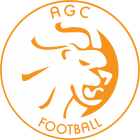 AGC Football
AGC Football AHFC Royals
AHFC Royals Albany Rush
Albany Rush ALBION San Diego
ALBION San Diego Alexandria Reds
Alexandria Reds Ambassadors Cleveland
Ambassadors Cleveland Arizona Arsenal Soccer Club
Arizona Arsenal Soccer Club Arlington Soccer Blue
Arlington Soccer Blue Arlington Soccer Red
Arlington Soccer Red Atlanta Fire United
Atlanta Fire United Austin Rise FC
Austin Rise FC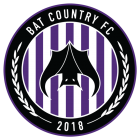 Bat Country FC
Bat Country FC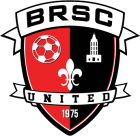 Baton Rouge United
Baton Rouge United Bavarian United SC
Bavarian United SC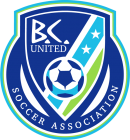 BC United
BC United Beach Futbol Club
Beach Futbol Club Beadling Soccer Club
Beadling Soccer Club Black Diamond FC
Black Diamond FC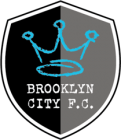 Brooklyn City F.C.
Brooklyn City F.C. Broomfield Burn
Broomfield Burn California Storm
California Storm Cape Coral Cyclones
Cape Coral Cyclones Carolina FC
Carolina FC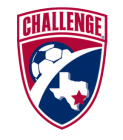 Challenge Red Devils
Challenge Red Devils Charlotte Eagles
Charlotte Eagles Chattanooga FC
Chattanooga FC Chicago House AC
Chicago House AC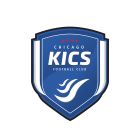 Chicago KICS Football Club
Chicago KICS Football Club City SC Utah
City SC Utah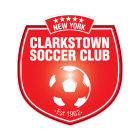 Clarkstown Soccer Club
Clarkstown Soccer Club Classics Elite SA
Classics Elite SA Cleveland Ambassadors
Cleveland Ambassadors Colorado Blizzard FC
Colorado Blizzard FC Colorado Pride
Colorado Pride Columbus Eagles FC
Columbus Eagles FC Corinthians FC of San Antonio
Corinthians FC of San Antonio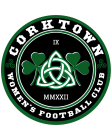 Corktown WFC
Corktown WFC CT Rush
CT Rush Dade County Football Club
Dade County Football Club Dakota Fusion FC
Dakota Fusion FC Dayton Dutch Lions FC
Dayton Dutch Lions FC DECATUR FC
DECATUR FC Delaware Ospreys
Delaware Ospreys Desert Dreams F.C.
Desert Dreams F.C. District Elite FC
District Elite FC DKSC BADTOP
DKSC BADTOP Downtown United Soccer Club
Downtown United Soccer Club El Paso Surf
El Paso Surf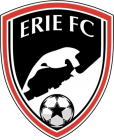 Erie FC
Erie FC FC Birmingham
FC Birmingham  FC Dallas Women
FC Dallas Women FC Davis
FC Davis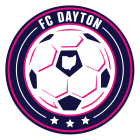 FC Dayton
FC Dayton FC Milwaukee Torrent
FC Milwaukee Torrent FC Monmouth
FC Monmouth FC Nashville Wolves
FC Nashville Wolves FC Premier
FC Premier 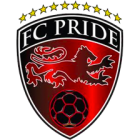 FC Pride
FC Pride FC PrimeTime
FC PrimeTime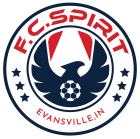 FC Spirit
FC Spirit FC Surge
FC Surge FC Tucson
FC Tucson FC Wichita
FC Wichita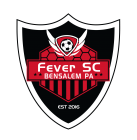 Fever SC
Fever SC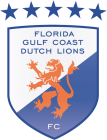 Florida Gulf Coast Dutch Lions FC
Florida Gulf Coast Dutch Lions FC Florida Krush
Florida Krush Florida Premier FC
Florida Premier FC Florida Roots
Florida Roots Force FC New York
Force FC New York Fort Worth Vaqueras
Fort Worth Vaqueras Fresno Freeze FC
Fresno Freeze FC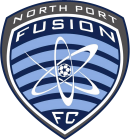 Fusion FC
Fusion FC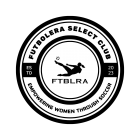 Futbolera Select
Futbolera Select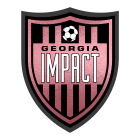 Georgia Impact
Georgia Impact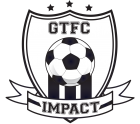 Greater Toledo Futbol Club
Greater Toledo Futbol Club Green Bay Glory
Green Bay Glory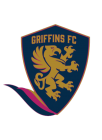 Griffins FC
Griffins FC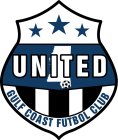 Gulf Coast United
Gulf Coast United Hattiesburg FC
Hattiesburg FC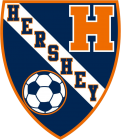 Hershey FC
Hershey FC HEX FC Tempest
HEX FC Tempest Indios Denver FC
Indios Denver FC Internationals SC
Internationals SC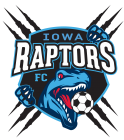 Iowa Raptors FC
Iowa Raptors FC Iron Rose FC
Iron Rose FC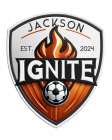 Jackson Ignite
Jackson Ignite Jacksonville Armada FC
Jacksonville Armada FC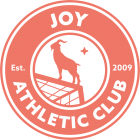 Joy AC
Joy AC Junction FC
Junction FC Kansas City Current II
Kansas City Current II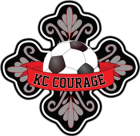 KC Courage
KC Courage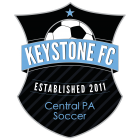 Keystone FC
Keystone FC  Kingston Capitals
Kingston Capitals LA Krewe Rush
LA Krewe Rush La Roca FC
La Roca FC LA Surf Soccer Club
LA Surf Soccer Club Lamorinda United
Lamorinda United Lonestar SC
Lonestar SC Lou Fusz Athletic
Lou Fusz Athletic LVU Rush
LVU Rush Manitou F.C.
Manitou F.C. Mankato United Soccer Club
Mankato United Soccer Club McLean Soccer
McLean Soccer Merrimack Valley Hawks FC
Merrimack Valley Hawks FC Midwest Select SA Muskrats
Midwest Select SA Muskrats Milwaukee City AFC
Milwaukee City AFC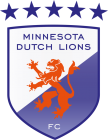 Minnesota Dutch Lions FC
Minnesota Dutch Lions FC Minnesota Thunder
Minnesota Thunder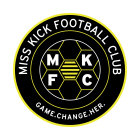 MISS KICK FC
MISS KICK FC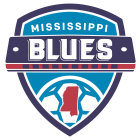 Mississippi Blues SC
Mississippi Blues SC Missouri Reign
Missouri Reign MN Bliss FC
MN Bliss FC Napa Valley 1839 FC
Napa Valley 1839 FC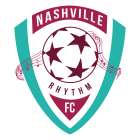 Nashville Rhythm FC
Nashville Rhythm FC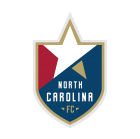 NCFC
NCFC Neuse River Futbol Alliance
Neuse River Futbol Alliance Nevada Futbol Club
Nevada Futbol Club New York Athletic Club
New York Athletic Club New York Dutch Lions FC
New York Dutch Lions FC New York Shockers
New York Shockers Niagara 1812
Niagara 1812 NJ Wizards SC
NJ Wizards SC  Northern Colorado Rain FC
Northern Colorado Rain FC Northern Utah United
Northern Utah United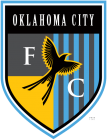 Oklahoma City FC
Oklahoma City FC PA Classics
PA Classics Penn Fusion SA
Penn Fusion SA Pensacola FC
Pensacola FC Pensacola FC Academy
Pensacola FC Academy Peoria City
Peoria City Philadelphia Ukrainian Nationals - Liberty
Philadelphia Ukrainian Nationals - Liberty PHX Heat FC
PHX Heat FC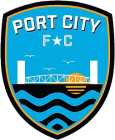 Port City FC
Port City FC Portland Thorns FC II
Portland Thorns FC II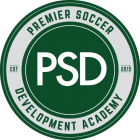 PSD Academy
PSD Academy Quad Cities Rush
Quad Cities Rush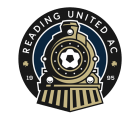 Reading United A.C.
Reading United A.C. Real Central NJ
Real Central NJ Rebels Soccer Club
Rebels Soccer Club RI Rogues FC
RI Rogues FC Rochester New York FC
Rochester New York FC Royals AZ
Royals AZ RSL Southern Arizona
RSL Southern Arizona  Saint Louis Scott Gallagher SC
Saint Louis Scott Gallagher SC Salvo SC
Salvo SC San Antonio Runners
San Antonio Runners San Diego Dons
San Diego Dons San Diego Parceiro
San Diego Parceiro 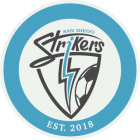 San Diego Strikers
San Diego Strikers San Diego Surf
San Diego Surf San Francisco Elite Soccer Club
San Francisco Elite Soccer Club San Francisco Nighthawks
San Francisco Nighthawks San Ramon FC
San Ramon FC SC del Sol
SC del Sol Seattle Reign FC II
Seattle Reign FC II Seminole Ice
Seminole Ice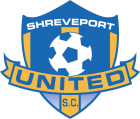 Shreveport United
Shreveport United Side FC 92
Side FC 92 Sioux Falls City FC
Sioux Falls City FC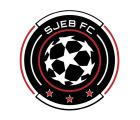 SJEB FC
SJEB FC So Cal Union FC
So Cal Union FC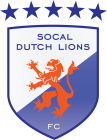 SoCal Dutch Lions FC
SoCal Dutch Lions FC Soda City FC
Soda City FC Southern California Eagles
Southern California Eagles SouthStar FC
SouthStar FC Spokane SC Shadow
Spokane SC Shadow Sporting CT
Sporting CT St. Croix Legacy
St. Croix Legacy STA
STA  Sunflower State FC
Sunflower State FC SUSA FC
SUSA FC The Town FC
The Town FC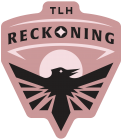 TLH Reckoning
TLH Reckoning TN Tempo FC
TN Tempo FC UFA Gunners
UFA Gunners UK F.C.
UK F.C. Union 10 FC
Union 10 FC Union KC
Union KC United Soccer Alliance
United Soccer Alliance Utah Avalanche
Utah Avalanche Utah Surf
Utah Surf  Vale SC
Vale SC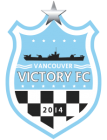 Vancouver Victory FC
Vancouver Victory FC Washington Dutch Lions FC
Washington Dutch Lions FC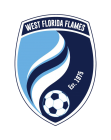 West Florida Flames
West Florida Flames West-Mont United
West-Mont United Westside Metros FC
Westside Metros FC WFC Charlotte
WFC Charlotte Women's Premier Soccer League 2
Women's Premier Soccer League 2